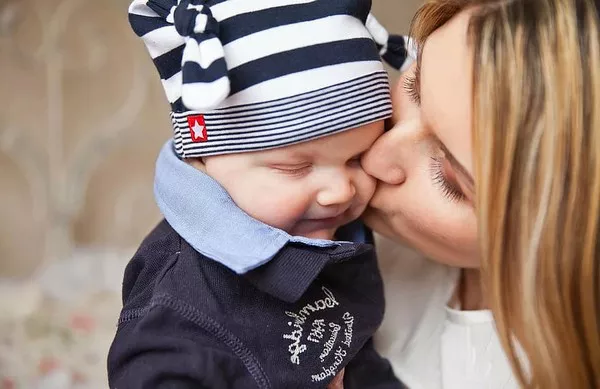Capturing the essence of your newborn through professional photography is a cherished tradition for many families. The tender moments of infancy pass by in the blink of an eye, making it all the more crucial to preserve them through timeless photographs. However, determining the optimal age for newborn photos can be a perplexing decision for parents. Factors such as the baby’s development, comfort, and the desired aesthetic all play significant roles in selecting the ideal timing for this memorable session. In this comprehensive guide, we delve into the considerations and recommendations surrounding the best age for newborn photography, ensuring that you make an informed decision that aligns with your preferences and priorities.
Understanding Newborn Photography
Before delving into the ideal age for newborn photography, it’s essential to grasp the intricacies of this specialized genre. Unlike conventional portraiture, newborn photography requires a unique set of skills and considerations. Photographers must possess not only technical expertise but also a deep understanding of newborn behavior and safety protocols. From posing delicate infants to creating a serene environment conducive to successful shoots, these professionals navigate a nuanced landscape to produce stunning imagery that captures the innocence and purity of newborns.
The First Few Days: 0-10 Days Old
For many photographers specializing in newborn photography, the first ten days of a baby’s life are considered the prime window for capturing those quintessential sleepy, curled-up poses. During this brief period, newborns tend to retain the flexibility and placidity reminiscent of their time in the womb. They sleep deeply and are more amenable to gentle posing, allowing photographers to create artistic compositions that evoke a sense of tranquility and serenity.
Moreover, newborns are less likely to experience skin concerns such as baby acne or peeling within the first ten days, contributing to a smoother complexion in photographs. However, scheduling a photo session within this timeframe necessitates careful planning and coordination, as parents adjust to the demands of caring for a newborn. Despite the logistical challenges, the resulting images often exude an unparalleled charm, capturing the ephemeral nature of early infancy with grace and poignancy.
The Two-Week Mark: 11-14 Days Old
As newborns transition into their second week of life, they may exhibit subtle changes in behavior and physiology. While still relatively sleepy and malleable, some infants may become more alert and responsive to their surroundings. For parents seeking a balance between the classic newborn poses and the emergence of their baby’s personality, scheduling a photo session between 11 and 14 days old can be a viable option.
During this period, photographers may incorporate a blend of posed portraits and candid moments, capturing the fleeting expressions and interactions that characterize this developmental stage. While newborn acne or minor skin imperfections may occasionally surface, skilled photographers can mitigate these concerns through strategic lighting and post-processing techniques, ensuring that the focus remains on the baby’s endearing features and expressions.
The Three-Week Milestone: 15-21 Days Old
By the third week of life, newborns typically undergo noticeable changes in their behavior and physical appearance. While still captivating subjects for photography, they may exhibit greater alertness and mobility, making it slightly more challenging to achieve the serene, curled-up poses characteristic of earlier stages. However, this phase presents its own unique opportunities for capturing authentic moments of connection and engagement between the baby and their family members.
Photographers adept at working with older newborns can leverage their expertise to create dynamic compositions that celebrate the baby’s burgeoning personality and interactions with loved ones. Whether capturing tender moments between parent and child or the subtle nuances of infant expression, these images serve as cherished mementos of this tender phase in family life.
Beyond Three Weeks: Tailoring the Session to Your Baby’s Development
While the first three weeks of a baby’s life are often considered the optimal window for newborn photography, every child is unique in their development and temperament. Some infants may thrive in a studio environment, posing comfortably well into their fourth or fifth week, while others may become increasingly restless or resistant to prolonged sessions.
Parents are encouraged to collaborate closely with their chosen photographer to determine the best timing for their newborn session based on their baby’s individual needs and preferences. Flexibility and open communication are key to ensuring a positive experience for both the baby and the family, as photographers adapt their approach to accommodate the evolving dynamics of each session.
Special Considerations: Premature Babies and Health Concerns
In cases where newborns are born prematurely or experience health complications, the timing of a newborn photo session may need to be adjusted to accommodate their unique circumstances. Premature infants often require specialized care and monitoring in the early weeks of life, limiting their availability for photography sessions until they gain sufficient strength and stability.
Parents of premature babies are advised to consult with their healthcare providers and photographers to determine the safest and most appropriate timing for scheduling a newborn photo session. Flexibility and patience are paramount in such situations, as the focus remains on the baby’s health and well-being above all else.
Conclusion
Choosing the right age for newborn photos is a deeply personal decision for parents, influenced by a myriad of factors ranging from aesthetic preferences to practical considerations. Whether opting for the classic poses of early infancy or embracing the spontaneity of later weeks, the ultimate goal remains the same: to immortalize the fleeting moments of newborn bliss and innocence through the artistry of professional photography.
By understanding the nuances of newborn development and working closely with experienced photographers, parents can navigate this decision with confidence, knowing that they are preserving precious memories that will be cherished for a lifetime. Regardless of the age at which newborn photos are taken, the resulting images serve as timeless reminders of the profound joy and love that accompany the arrival of a new life into the world.


